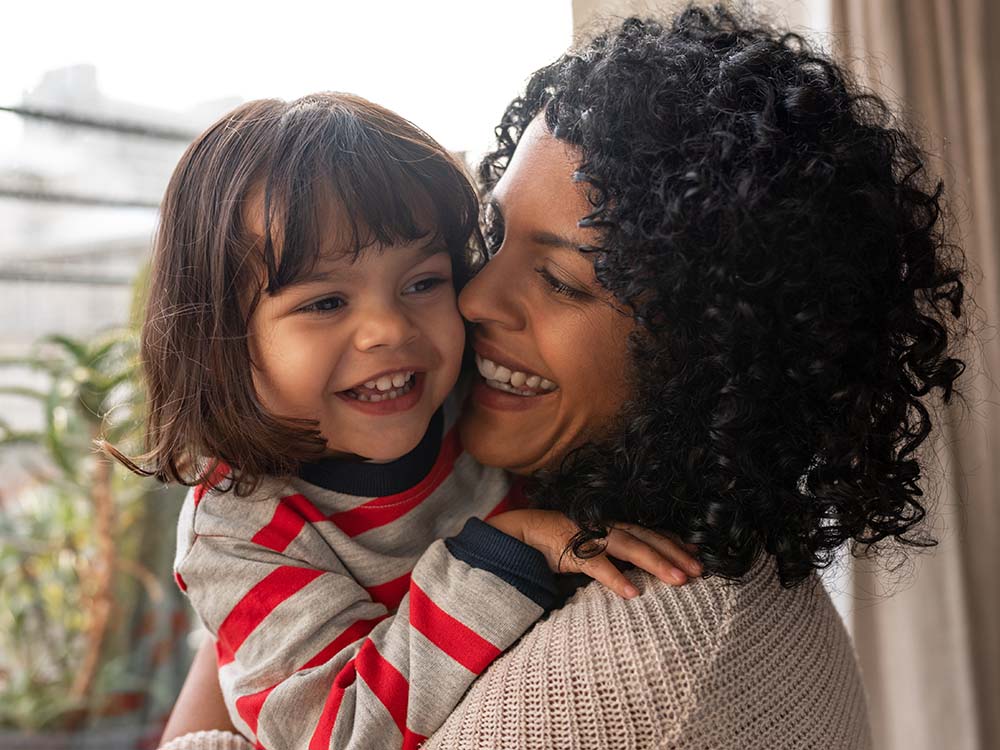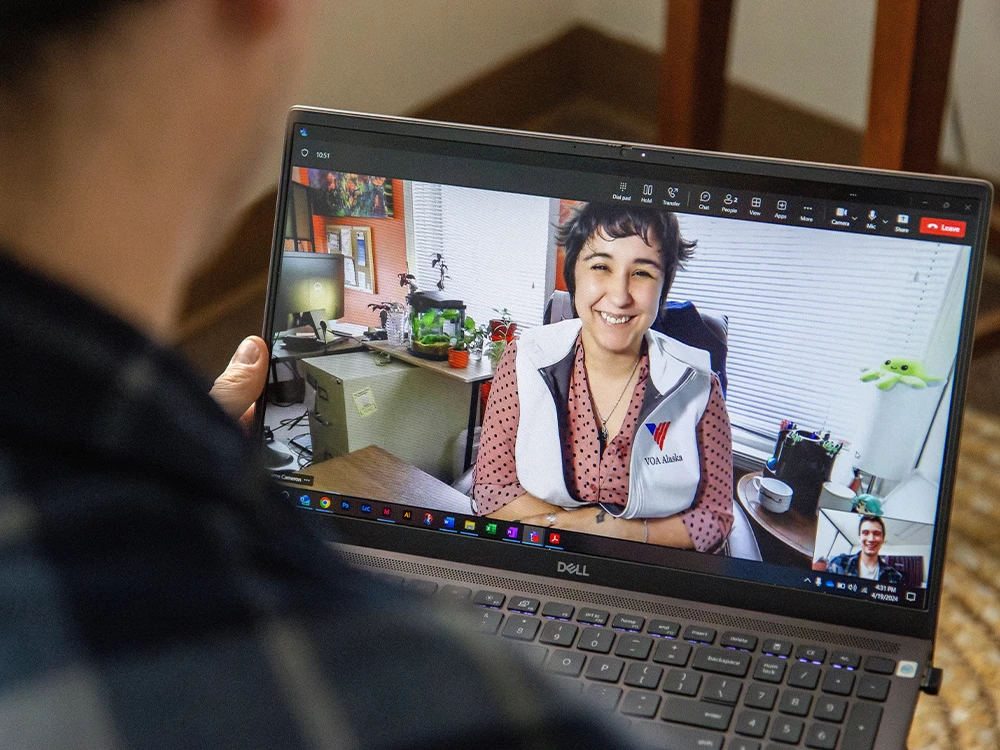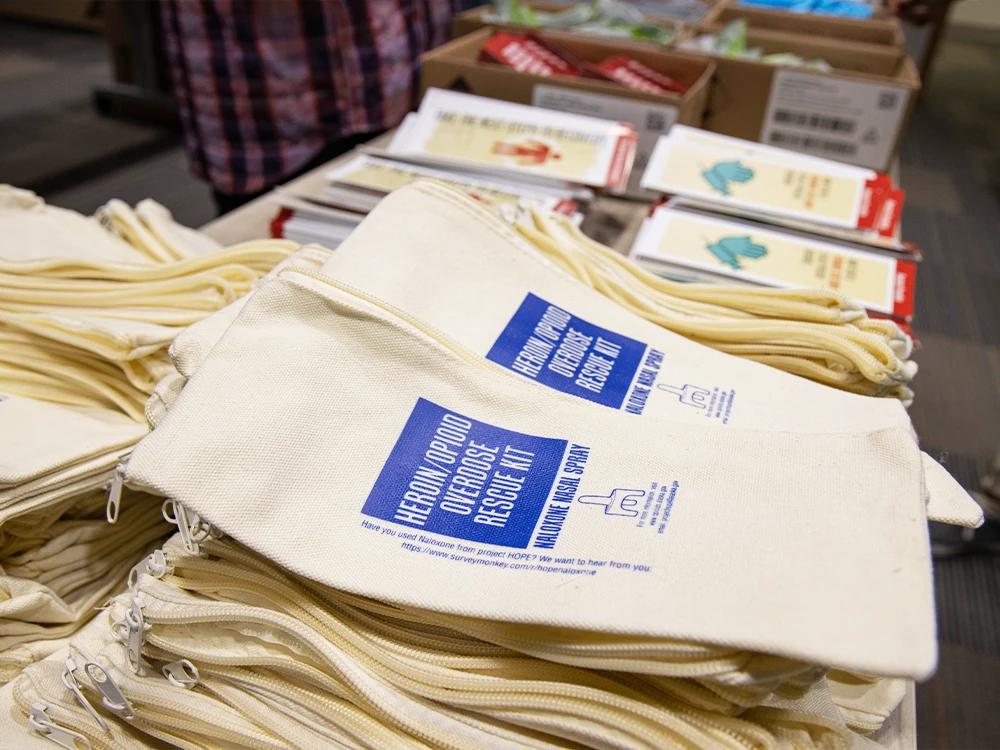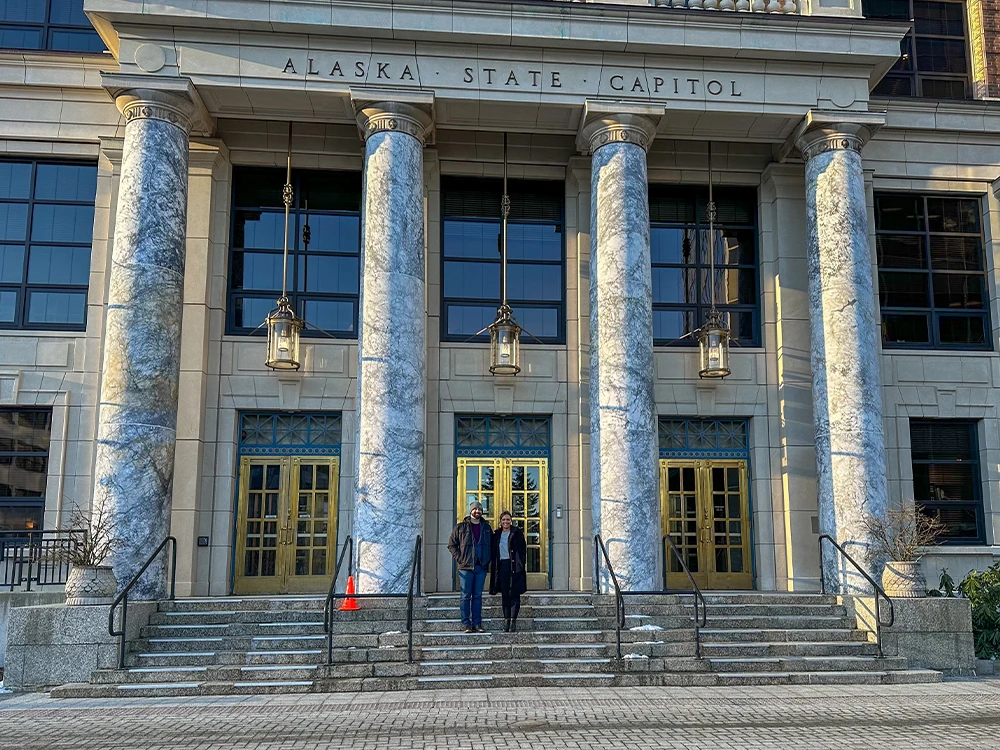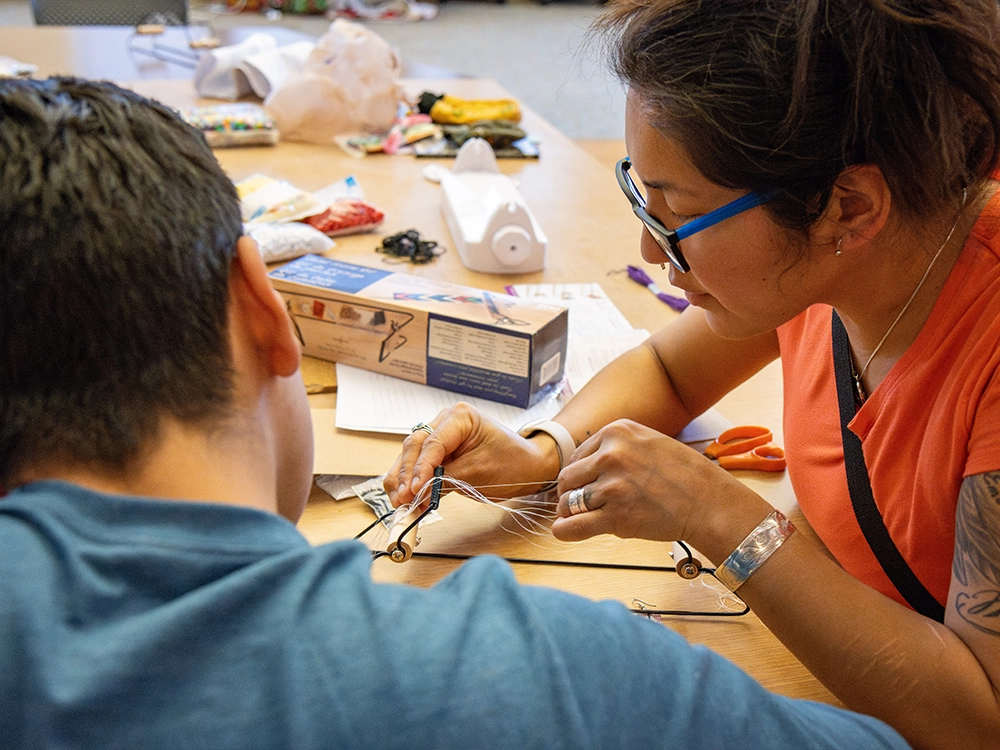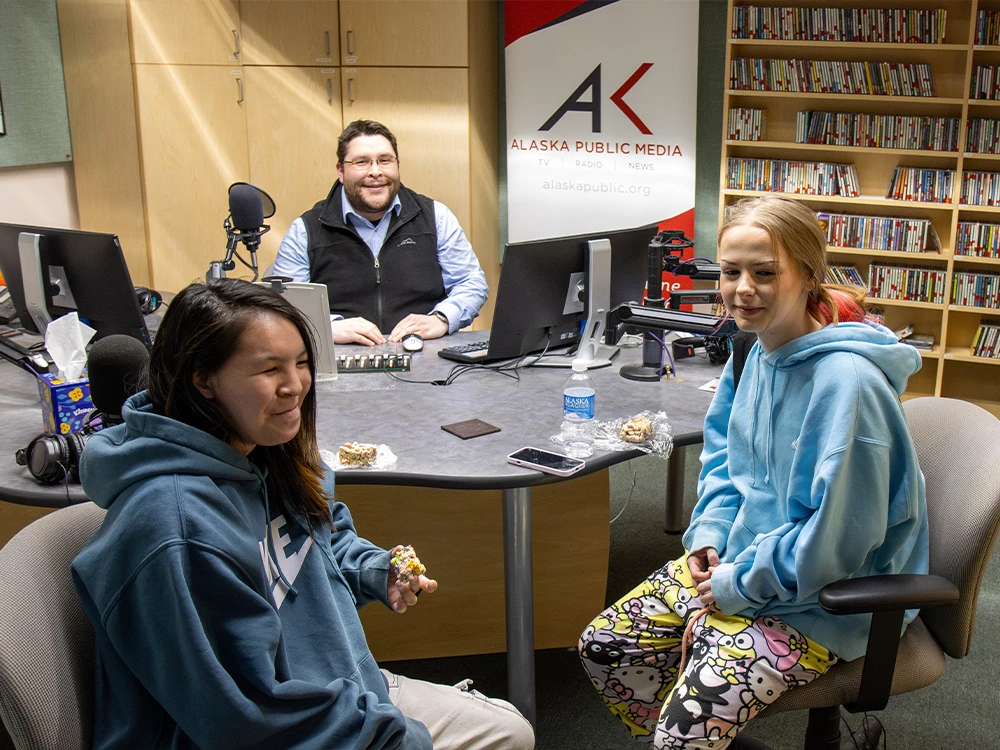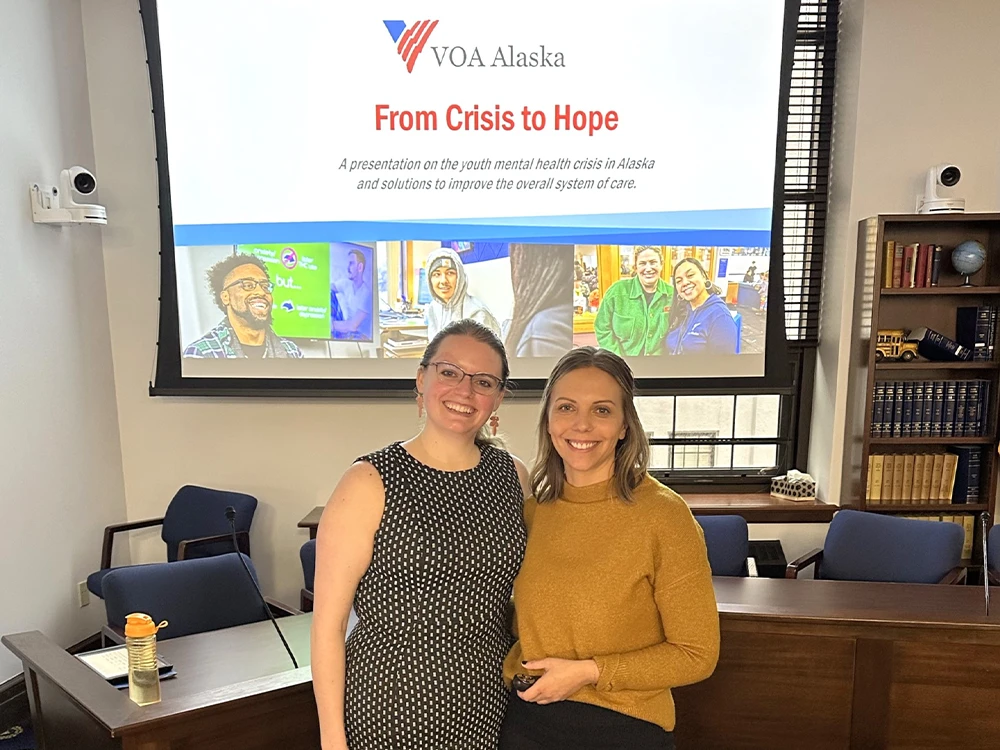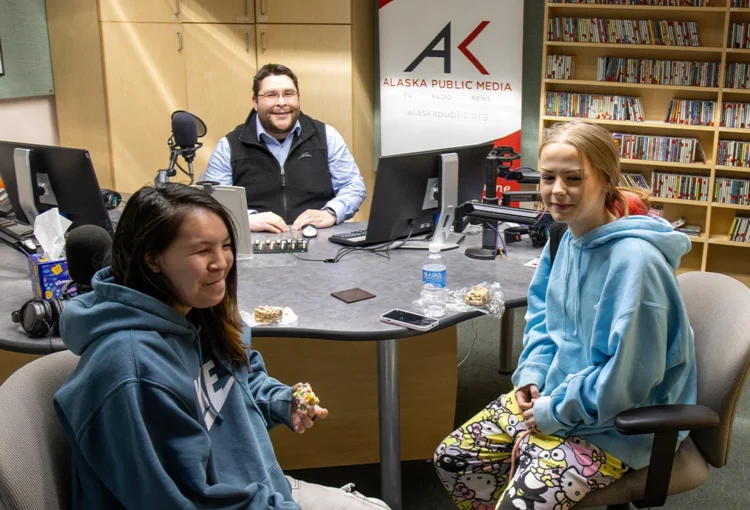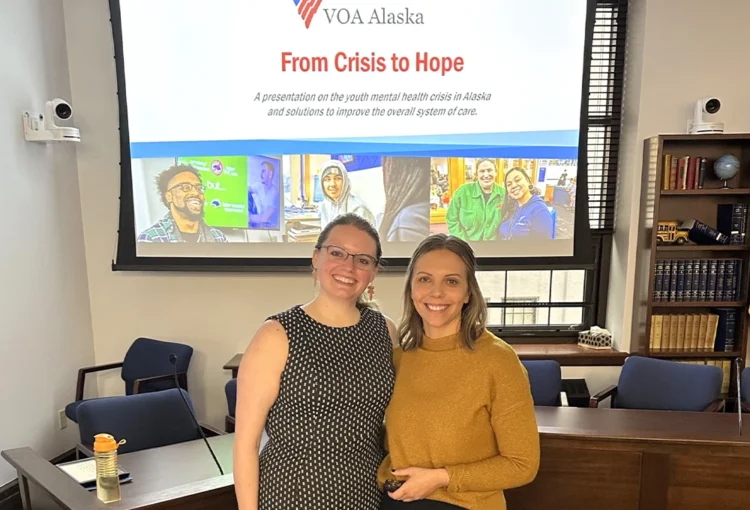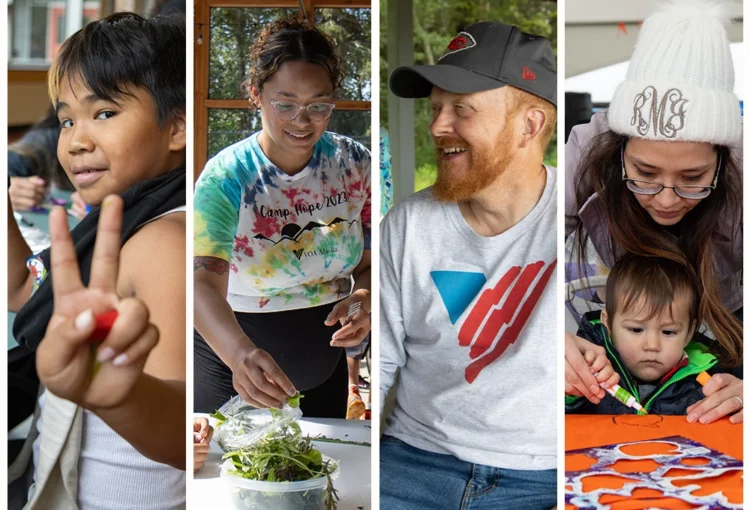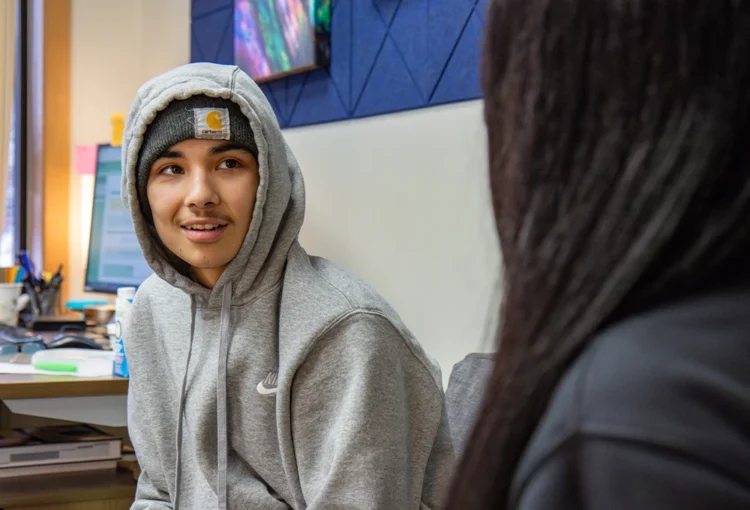Below is the extended version of “Stories of Impact: Kinship Family Program,” which is featured in our 2021 Community Impact Report. Click here to view the report and find links to all of our Stories of Impact.
Ashley was in and out of foster care growing up. So was her mother. When Ashley and her husband Kyle saw the conditions that her cousin’s children were growing up in, they discussed what they would do if they ever received the call to care for them.*
When that call came, they didn’t hesitate to bring the four children into their home.
“It’s really important, because I get to love these kids during this time, however long it may be,” Ashley says, referencing the fact that the State still considers it a temporary placement.
For Ashley, caring for her cousin’s children, in addition to two of their own, is a chance to break the perpetual generational trauma in her family. It’s also an opportunity to keep the children integrated in their own extended family.
For the kids, Ashley says, it’s important that they can understand that “‘this is my family, and these are my aunts, and these are my uncles, and these are my cousins.’” She explains that when she was in foster care, she would think, “Well, they’re like my sister, but they’re not my sister.” So being with family “removes the confusing part” for the kids and reduces additional trauma.
But even with their hearts and minds prepared to support additional children, their finances strained with the resources required to feed, clothe, and entertain a family of eight.
Ashley says they were making it work, but their credit card debt was growing. “I’m very intentional about not treating them like other,” Ashley says. “They’re going to grow up with what my kids are used to.”
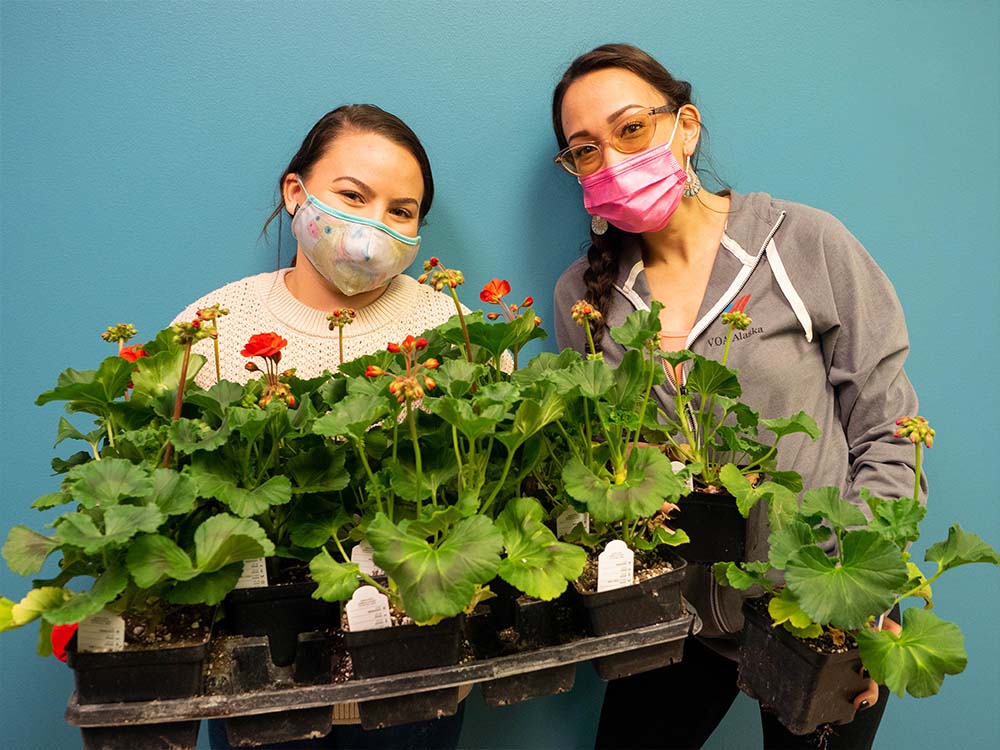
Ashley Reaches Out for Help and Finds Unconditional Support
One day, she was scrolling through an adoptive foster group on Facebook when she spotted a post about VOA Alaska’s Kinship Family Program.
Other programs she’d reached out to expected her and Kyle to have exhausted all options before receiving help, “and you’re like, I don’t even know what all options are!” But Ashley says she noticed VOA Alaska was different, “because you don’t have to be at the end of your rope to be asking for help. And it was unconditional.”
From financial assistance to support groups to workshops to outings, Ashley says the Kinship Family Program “helps me create a more loving, family-like environment.” When she goes to a support group, she can “word vomit all of my issues” and then not have to carry that home to her kids. Education opportunities, like the Strengthening Families workshop, teaches caregivers parenting skills and youth life skills. The Kinship team delivers food boxes throughout the year and special gifts from community donors during the holidays.
The staff are “just so sweet, so non-judgmental, so welcoming,” Ashley says. “It’s such a breath of fresh air when you’re in this whole situation.”
Ashley Discovers “a Community that Just Gets It”
The best part of the program is belonging to “a community that just gets it.” To Ashley and Kyle, raising their cousin’s four children is their normal, whereas for others, it’s “so far from what they can process.” So having the connection with peers and the program team removes the feeling that they are oversharing every time that want (or need!) to talk about their life and family.
For kinship caregivers that may need extra support, Ashley says it’s important to not let your pride get in the way. Don’t wait until you’re desperate. The longer you wait to seek out resources, the more resources you are going to need.
As Ashley explains it, you must come to the “understanding that these services are here to help all people, not just people who have empty fridges, not just people who have empty cabinets.” Don’t let yourself “get in a position where you’re robbing Peter to pay Paul just to keep things in balance.”
“I would really just encourage them to put that aside and make one phone call and see how it goes.”
A Reflection from the Kinship Team
In the Kinship Program, every family is completely different. Their relationships, ages, situations, needs, and everything in-between. Ashley and Kyle are the type of family no one in the program can forget, and not only because they are raising their cousin’s children while still raising their own, but they took FOUR children while having TWO of their own. They are a family that attends the Kinship Program events to provide opportunities for the children, but also to connect, help, and be of any resource to other Kinship Families.
When participating in Strengthening Families Alaska, Ashley and Kyle reached out to try and volunteer their time to help other families by training and educating with our program. They are a couple that was handed difficult cards at birth, turned them into compassion, and not only stepped up to the plate to raise other’s children – but constantly want to help others who do the same.
Their story highlights how important the Kinship Family Program is for Alaska’s raising relative children. They have all the love to give, but they just needed a helping hand. We’re honored to serve them and all of our Kinship Families!
– Abagail Owens, Kinship Network Facilitator
*Name, image, and some personal details have been changed to protect confidentiality.

